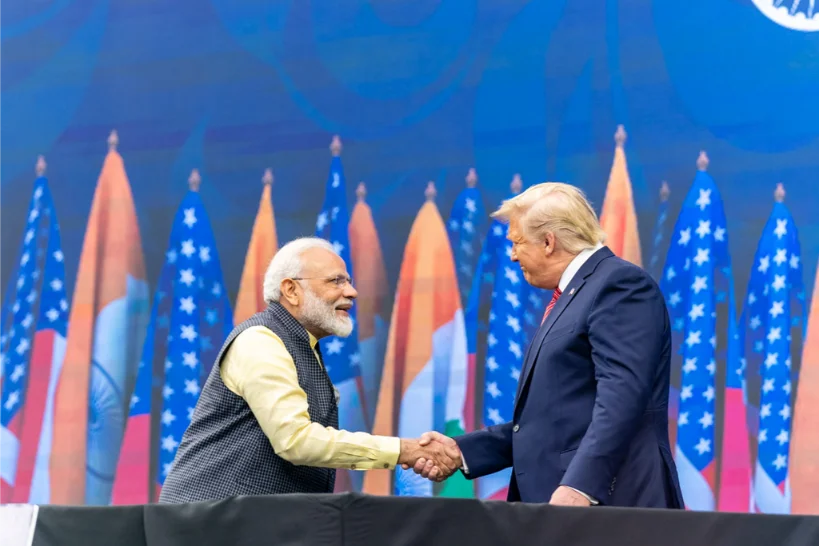In February 2025, Indian Prime Minister Narendra Modi embarked on a significant visit to Washington, D.C., to engage in bilateral discussions with U.S. President Donald Trump. This meeting aimed to address pressing issues such as trade imbalances, defense cooperation, and immigration policies, reflecting the evolving dynamics of U.S.-India relations.
In 2023, India’s announcement of tech import restrictions set off alarms in the U.S. as business leaders claimed the move would damage New Delhi’s ambitions to become a global manufacturing hub and would harm consumers.
Trade Relations and Economic Goals
A central focus of the discussions was the enhancement of bilateral trade. Both leaders expressed a commitment to resolving existing trade disputes and fostering economic collaboration. Modi announced an ambitious target: “We have… set ourselves the target of more than doubling our bilateral trade to attain $500 billion by 2030.” This goal underscores India’s intent to expand economic ties and reduce trade barriers.
Trump, emphasizing the need for equitable trade practices, introduced a “reciprocal tariffs” strategy. He stated, “Whatever India charges, we charge them,” highlighting concerns over India’s high import duties on U.S. goods. This approach aims to balance the trade relationship and address the U.S. trade deficit with India.
Defense Cooperation and Strategic Partnerships
Defense collaboration emerged as a pivotal theme during the visit. The U.S. expressed intentions to bolster military sales to India, including advanced technologies such as the F-35 stealth fighter jets. While specific timelines were not detailed, this move signifies a deepening of defense ties between the two nations. Both leaders also agreed to enhance security cooperation in the Indo-Pacific region, aiming to promote stability amidst regional challenges.
Immigration and Extradition Agreements
Immigration issues were also on the agenda. Modi conveyed India’s readiness to repatriate citizens residing illegally in the U.S., stating, “India is fully prepared to take back any verified Indian who is in the U.S. illegally.” This commitment reflects a collaborative effort to address illegal immigration and human trafficking concerns.
In a significant development, Trump supported India’s request for the extradition of individuals implicated in the 2008 Mumbai attacks, notably Tahawwur Hussain Rana. This move is poised to strengthen India’s domestic security efforts and exemplifies the cooperative spirit between the two nations in combating terrorism.
Future Prospects
Looking ahead, both countries are poised to finalize a mutually beneficial trade agreement, with discussions expected to conclude later in the year. Collaborations are anticipated in sectors such as artificial intelligence, semiconductors, and the establishment of robust supply chains for strategic minerals. These initiatives aim to foster innovation and economic growth, reinforcing the strategic partnership between the U.S. and India.
The visit underscored a shared vision for a prosperous future, with Modi remarking, “Together we will march towards progress and prosperity of our two nations.” This sentiment reflects the commitment of both leaders to strengthen bilateral ties and address global challenges collaboratively.
Modi’s visit to Washington marked a pivotal moment in U.S.-India relations, characterized by constructive dialogue and a mutual resolve to enhance cooperation across various domains. The outcomes of this visit are expected to pave the way for a more robust and dynamic partnership in the years to come.
